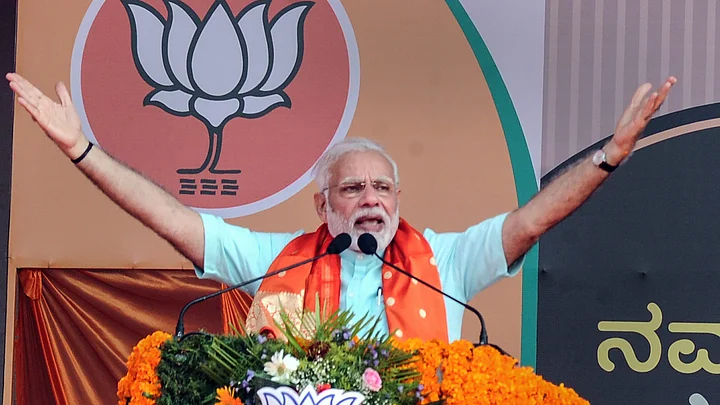With the loss of Kairana in Uttar Pradesh and Bhandara-Gondiya in Maharashtra, the Bharatiya Janata Party (BJP) now has 271 seats in the Lok Sabha (Lower House of Parliament), down 11 from the 282 seats it won in the 2014 Lok Sabha elections.
The BJP managed to retain only one seat – Palghar, Maharashtra – after the bypolls held on 28 May, 2018.
While the BJP lost the Kairana seat to Rashtriya Lok Dal, it lost the Bhandara-Gondiya seat to the Nationalist Congress Party.
With its tally down to 271 in Lok Sabha after bypoll losses, the BJP as a party has lost simple majority, which is 272 seats. NDA, including BJP and allies, still has majority with 315 out of 543 seats.
Since 11 March, 2018, bypolls were held for seven Lok Sabha constituencies and 11 state Assembly constituencies across the country. The voting for all the state assemblies were held on 28 May, and the result was announced on 31 May.
The BJP did not win any seats in the Uttar Pradesh Lok Sabha bypolls held earlier on 11 March and 14 March, thus losing the seats of Gorakhpur and Phulpur held by Chief Minister Yogi Adityanath and Deputy Chief Minister Keshav Prasad Maurya, respectively.
So, in UP, where the party had won 71 of the 80 Lok Sabha seats in 2014, the BJP is now left with 68 seats.
The BJP managed to retain the Palghar seat in Maharashtra where the party called in Yogi Adityanath for campaigning.
The reason being highlighted for the poll results by the Opposition in Uttar Pradesh is the farmer distress in the state. “Jinnah nahi Ganna jeeta hai (not Jinnah but sugarcane has won),” claimed Rashtriya Lok Dal leader Ajit Singh.
The results of the bypolls to 11 Assembly seats across 10 states also came as a major setback to the BJP-led National Democratic Alliance (NDA).
Of the 11 seats, the NDA has managed to win only one in Tharali, Uttarakhand. The Congress won in Karnataka’s RR Nagar, Meghalaya’s Ampati, Punjab’s Shahkot and Maharashtra’s Palus-Kadegaon seats.
After retaining Ampati, Congress is now the single largest party in Meghalaya with 21 out of 60 seats.
In Bihar, the Rashtriya Janata Dal remains the single largest party with 81 of 243 seats (up from 80) after winning Joikhat. The ruling Janata Dal (United) now has 70 seats (down from 71).
After Trinamool Congress retained the Maheshtala seat, it remains the largest party (211 seats) in the 295-seat West Bengal Legislative Assembly.
Congress has won Shahkot from the Shiromani Akali Dal (SAD). Congress now has 78 (up from 77) seats and SAD has 14 (down from 15) seats in the 117-seat Punjab Assembly.
Samajwadi Party (SP), after clinching Noorpur from the BJP, now has 48 seats (up from 47) in the 403-seat Uttar Pradesh Legislative Assembly. The BJP is down to 311 (from 312), and remains the largest party.
The Communist Party of India (Marxist) retained the Chengannur seat, and remains the largest party (91) in the 140-seat Kerala Legislative Assembly.
The Jharkhand Mukti Morcha (JMM) retained the Gomia and Silli seats, and continues to be the second largest party (after BJP) in the 81-seat Jharkhand Legislative Assembly.
The NDA’s sole victory was in BJP retaining the Tharali Assembly seat in Uttarakhand. The BJP remains the largest party in Uttarakhand with 57 of 70 seats.
(With inputs from Sravan Pallapothu, an MSc student at the Symbiosis School of Economics, Pune, and an intern at IndiaSpend)
(This article was first published on IndiaSpend and has been republished here with permission)
(At The Quint, we question everything. Play an active role in shaping our journalism by becoming a member today.)
